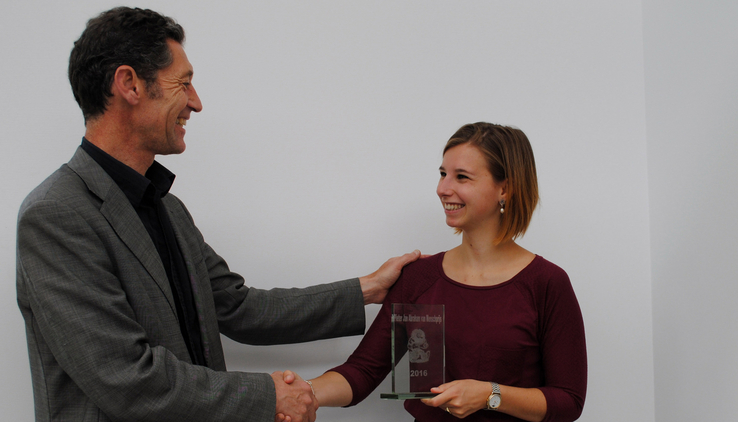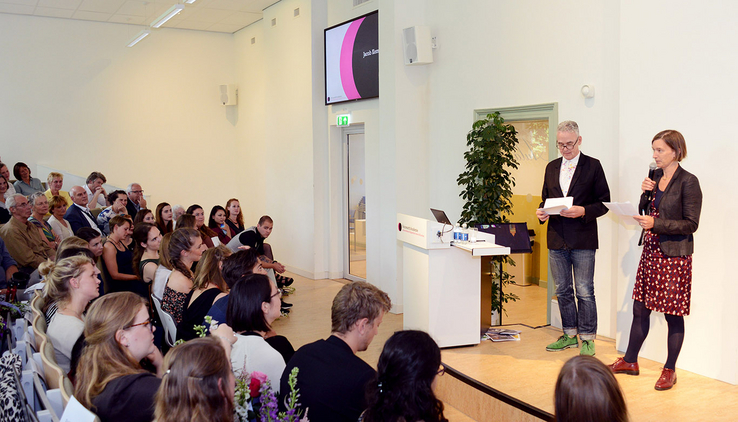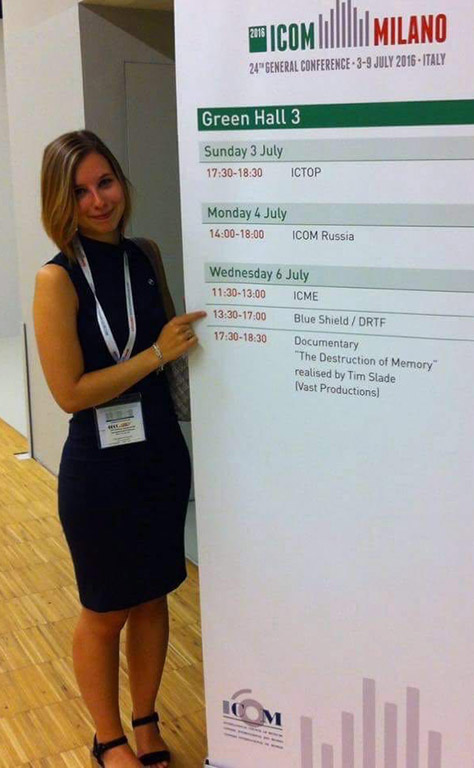Kristel Witkam has written about an extremely topical theme: ‘Cultural heritage in conflict: helping soldiers to protect cultural heritage in conflict zones; towards a practical tool.’ Kristel asked herself how you could help soldiers on a mission with their task to protect ‘cultural property’, which they are obliged to do under the Hague Convention.
In order to do this, she compared three tools, placed them in an instructional setting and presented everything to a team of experts. She subsequently developed a course and an app based on this: research was directly transformed into practical tools!
The professors Hester Dibbits and Riemer Knoop announced the award winner during the graduation ceremony on 7 July. Kristal was not present for this: she was leading an interactive workshop at the ICOM congress in Milan. Surrounded by professionals from the field of work, alumni and lecturers from the Academy, Kristel celebrated the recognition of her graduation work. Kristel was supervised by Reinwardt Academy lecturers Margriet Oomens and Marjan Otter, and Edwin Maes, cultural heritage specialist for the Cultural-historical Background and Information Division (Sectie Cultuurhistorische Achtergronden en Informatie, CAI) and professor at the Dutch Ministry of Defence.
Jury
The professors were responsible for the selection of the winner of the Pieter Jan Abraham van Mensch Award, which has a shortlist of four candidates this year. As part of the selection, they searched for an innovative vision in the graduation theses with a strongly future-oriented contribution to the heritage debate, as well as the passion that the authors displayed to the reader in the research. The prize award was named after Peter van Mensch, the founding father of what used to be the Samuel von Quiccheberg Prize, which was named after the world’s first museologist. The other nominees this year were as follows:
• Marlieke Batelaan researched how a small museum can be interesting to primary schools with demand-driven guided tours. She tested the methods of the Tropenmuseum, Villa Zebra and the Kröller-Müller Museum.
• Anne Kersten explored a new interconnecting area in our urban culture for expression of ‘traditional’, ‘non-Western’ societies, in this case that of the Aboriginals, and the vision of stakeholders on that. She concluded, among other things, that: ‘Museums cannot be separated from the society from which they emerge.’
• Kimberley Bouquet wrote Kansen in het donker: het verhuren van depotstukken aan particulieren (Opportunities in the dark: hiring out storage pieces to individuals) and researched, with the cooperation of seven museum institutions and the public, if we really have – as is often said – too many museums with too many items.
Theses
Download the thesis of Kristel Witkam (in Dutch)
Download the theses of former prizewinners (in Dutch)


